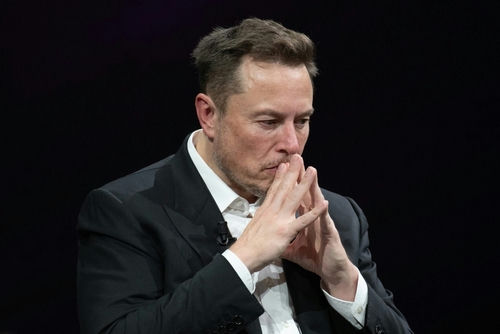Elon Musk’s public challenge to federal agencies—urging them to “just release the files as promised”—has reignited the firestorm over the so-called Epstein files, exposing yet again how the powerful dodge accountability while everyday Americans are told to “just trust the experts.”
Musk Calls Out the Bureaucrats: ‘Just Release the Files’
Elon Musk, never shy about poking the bear, publicly called on the Department of Justice and the FBI to keep their word and release all files related to deceased financier and convicted sex offender Jeffrey Epstein. Musk’s challenge comes as the DOJ and FBI have, after years of speculation and demands for honesty, released only a watered-down memo. The memo claims there is no so-called “client list” and doubles down on the official line that Epstein’s death was a suicide. For Americans tired of watching government agencies hide behind redacted pages and bureaucratic jargon, Musk’s demand strikes a familiar nerve: why won’t these agencies let the facts see daylight?
The demand for full disclosure is not just about Epstein. It’s about a pattern of government stonewalling—especially when the elite or well-connected are involved. Musk’s comments have inflamed debate online, with millions echoing his frustrations. In a media environment where trust in federal institutions is at an all-time low, the refusal to release unredacted documents only feeds the suspicion that the American people are being played for fools. Musk has repeatedly pointed out that if there’s nothing to hide, then why not just release the files as promised?
DOJ and FBI Dig In: ‘No Client List’—But Skepticism Remains
The Department of Justice and FBI’s July 2025 memo was supposed to put the issue to rest. Instead, it did the exact opposite. The agencies stated flatly that there is no Epstein “client list,” and that no further disclosure is “appropriate or warranted.” The memo also reaffirmed the official ruling of suicide, dismissing the mountain of speculation and skepticism that has built up since 2019. For millions of Americans who have watched powerful men skate away from accountability time after time, the memo felt like a slap in the face.
Elon Musk comments on the 'Epstein Files' fiasco.@elonmusk trump is in it🤣😂 I guess you can’t SNITCH on your Donors (Homeboys) #EpsteinClientList #EpsteinCoverUp pic.twitter.com/FmtIRH3Gu4
— k.mahader (@mahader_17) July 13, 2025
The DOJ and FBI’s refusal to provide the full, unredacted files—on the grounds of privacy and legal concerns—has only deepened mistrust. Legal experts say that protecting victims and avoiding unsubstantiated allegations is important, but critics argue that shielding information only serves to protect the influential. Social media platforms have exploded with accusations of cover-ups and government overreach, fueled by high-profile voices like Musk and Dogecoin creator Shibetoshi Nakamoto, who has made a sport of lampooning the whole charade.
Musk’s Accusations, Retractions, and the Perpetual Circus
The latest twist in this saga came when Musk, in the midst of a very public feud with President Trump, lobbed the accusation that Trump himself was “in the Epstein files.” The claim lasted about as long as a CNN fact-check before Musk deleted his posts and issued an apology, admitting he had “gone too far.” Trump, for his part, responded with characteristic fury, posting a statement from his lawyer David Schoen to Truth Social, reiterating that he was never implicated in any crime involving Epstein.
While Musk’s retraction might have quieted the legal threat, it did nothing to calm the mob. The left weaponized the accusation, while the right—already skeptical of the DOJ and FBI—saw it as more evidence of a system stacked against conservatives and everyday Americans. Meanwhile, Democratic lawmakers continue to demand more disclosure, using the Epstein affair as a political bludgeon. The cycle repeats: accusations, denials, bureaucratic stonewalling, and zero real accountability.
Public Distrust and the Erosion of Accountability
The deeper story here is not just about Epstein, Musk, or even Trump. It’s about the collapse of trust in the institutions that are supposed to serve the American people. Each time the DOJ or FBI withholds information, it sends the message that the powerful are above scrutiny, and the public is not entitled to the truth. Victims of Epstein’s crimes are retraumatized as their stories become political footballs, and the reputations of both the accused and the innocent are dragged through the mud.
🇺🇲 Elon Musk after #Trump defended #Epstein and refused to release the files:
"This is a very big deal. What the hell kind of system are we living in if thousands of kids were abused, the government has videos of the abusers and yet none of the abusers are even facing charges" pic.twitter.com/DKRvPxmMfB
— Brunella C. (@BrunellaCapitan) July 13, 2025
Long after the headlines fade, the damage to public trust lingers. The refusal to release the full files ensures that conspiracy theories will thrive, and that Americans—especially those who have watched constitutional rights and family values eroded by the whims of bureaucrats—will keep asking: what are they so desperate to hide? Until the files are released, and the truth is laid bare, the suspicion won’t die. And neither will the demand for real accountability.
Sources:
DOJ, FBI conclude Jeffrey Epstein had no “client list,” committed suicide

